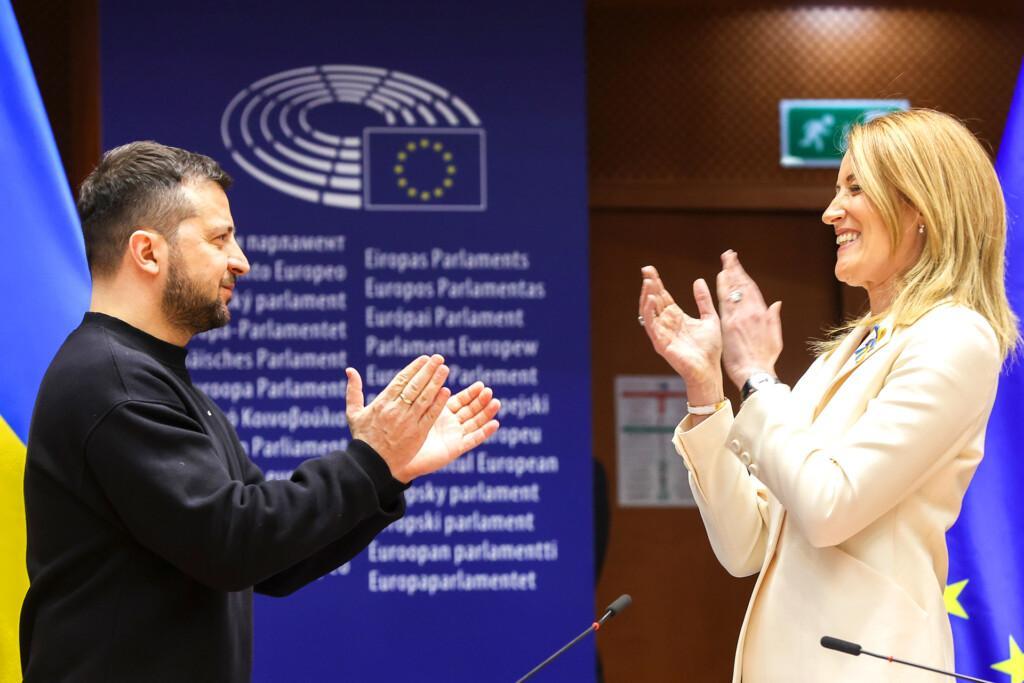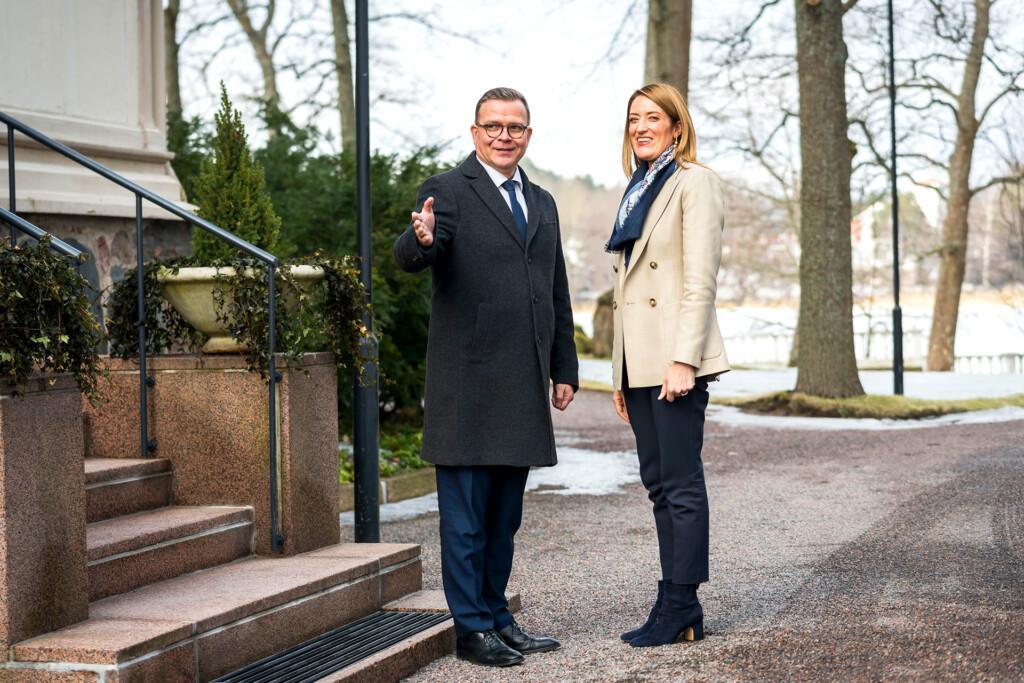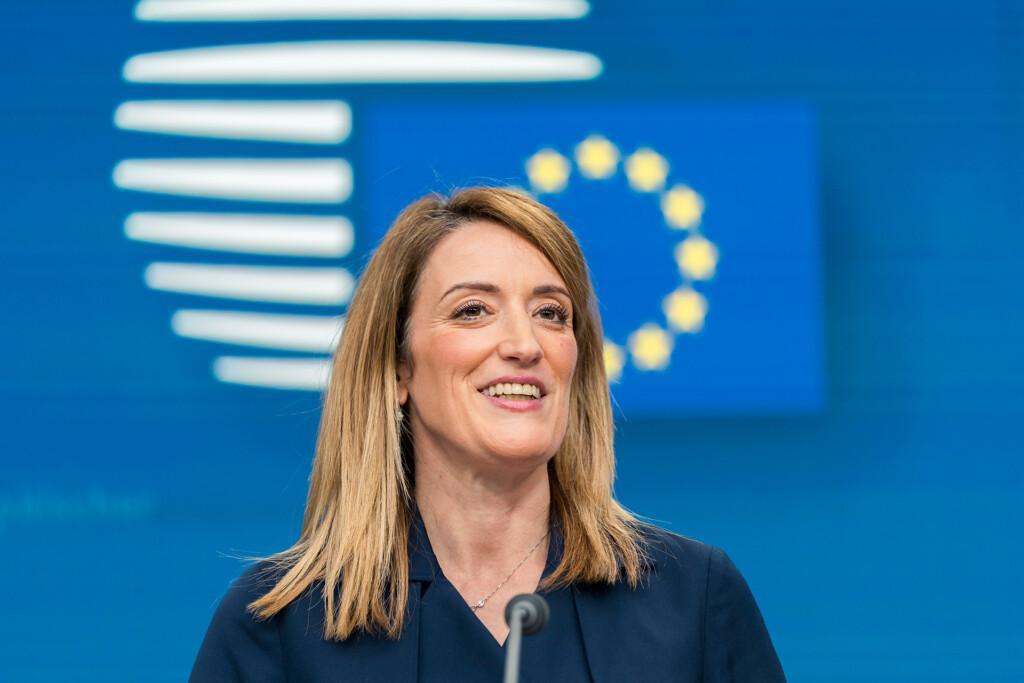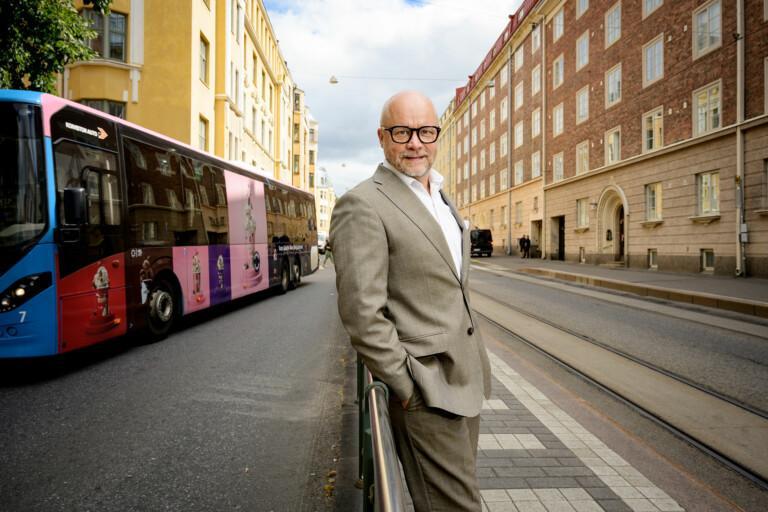You can read article in Finnish: EU-parlamentin puhemies Roberta Metsola: Kilpailukyvyn parantaminen vaatii erityishuomion
What are the most important themes affecting businesses in the European Parliament to be elected in June, European Parliament President Roberta Metsola?
“Competitiveness remains a primary concern. We must be able to guarantee affordable energy, to fight inflation and ton ensure that the green transition and digital transformation continue properly. We want to encourage and use market-based tools, such as the emission trading system and carbon border adjustment mechanism to achieve our goals.”
What is needed to improve competitiveness also requires funding. How can this be resolved?
“The EU is set to spend €500 billion a year solely on the green and digital transition. However, there is no need to reinvent the wheel, as the NextGenerationEU recovery fund is ready and available. Finland’s economy has benefited by nearly €2 billion from the recovery and resilience facility. The support for innovative and sustainable Finnish growth companies is continuing with RePowerEU Cleantech funds, aimed at reducing dependence on fossil fuel imports from Russia.”

What does business success require?
“We must fully utilise the potential of the EU’s internal market and avoid falling into the trap of protectionism. But we also need to accelerate private investments in Europe to get our economy back on the path of stable growth. This is also a prerequisite for our security. One of the main priorities for the next term is to strengthen and deepen the capital markets union.”
Do businesses understand the significance of the EU Parliament?
“The European Parliament and the Council, representing the member states’ governments, together enact the vast majority of the laws of the European Union. The Parliament is an equal legislator alongside the European Council in most policy areas, such as economic governance, immigration, energy, transport, the environment and consumer protection. During the past term, the Parliament has been enacting groundbreaking legislation in areas like climate crisis mitigation, AI regulations and protection against asbestos and cancer. For businesses operating in the EU internal market, EU legislation guarantees a market of nearly 500 million residents with a unified regulatory environment. Its effects also resonate around the world. During this term, Europe has also made significant strides in the healthcare, energy and security sectors, and has found consensus on the recovery and resilience facility, which has been crucial for many national economies. To stay on the path of sustainable growth and achieve our climate goals, we must ensure a predictable operating environment for businesses in Europe, and consider different sectors by providing them with real incentives.”
Do issues like the green transition and labour-based immigration risk backsliding if extreme political parties gain influence in the EU Parliament?
“It’s clear that citizens want an environmentally friendly, competitive and fair Europe where no one is left behind. However, people must be able to trust that the policies adopted are feasible and that they can afford them. Otherwise, citizens will seek answers from the political fringes. Therefore, we need to listen more closely to citizens’ voices to address their real problems and alleviate socio-economic challenges. After the elections, we will see what the parliamentary majority looks like. However, I strongly believe that a constructive Europe-friendly majority will continue to advance things for the benefit of citizens.”

Has competition in taxes and state aid increased in the EU area? What impact does this have on the functioning internal markets?
“The EU internal markets, which turned 30 last year, are among our greatest achievements. We must build on them and avoid fragmenting them. My instinct tells me that our businesses will thrive in competitive markets. However, we must guarantee them fair operating conditions. Lately, it has become clear that Europe must become stronger, more sustainable and more self-reliant.
In this regard, we are assessing our interdependencies and considering how best to promote private investments. Clearly, strong internal markets are the cornerstone of a competitive Europe. For our economy to function well, we need the investment environment to be predictable and have confidence that the rule of law is prevailing throughout the union. We don’t need to protect ourselves from competition by building walls. Our economy has grown over the years precisely because we have defended the opposite approach.”

What is Finland’s role in the EU?
“Finland is an important member of the European Union and naturally plays a significant role in many areas. I recently visited the country in March and know how much Finland does to secure the union’s external borders. Russia’s recent attempts to instrumentalise migrants at your eastern border highlight the country’s important role in European security and safeguarding the Schengen area. It is largely thanks to Finland’s long-term efforts that the union now pays much attention to the rule of law and adherence to the union’s fundamental values. I believe that Finland will play a crucial role in the next term in developing Europe’s strategic competitiveness, security and dual transition. In light of the strategy approved by Finland’s government in January, Finland has proven itself to be a proactive player in the European Union.”
Speaker of the European Parliament Roberta Metsola

Roberta Metsola has been a member of the European Parliament since 2013 and its president since January 2022. The 45-year-old Maltese represents the Partit Nazzjonalista party, which belongs to the EU Parliament’s largest political group, the center-right EPP. She is running in the EU elections in June.
Photo: EP
Roberta Metsola’s photo: EP
Added May 16th 2024: The first version of this translation was done by AI, the translation was checked by a professional translator





















